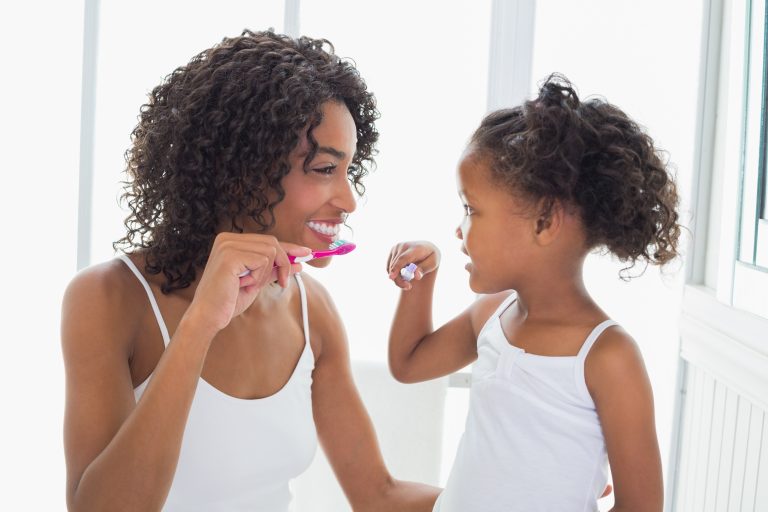
How Pediatric Dentistry Impacts Children's Oral Health
We’re all about giving kids a great start with dental care that’s totally kid-friendly. Our goal? To create a connection between our team and our little patients, so they feel involved and pumped about looking after their teeth. When dental visits are fun, it sets the stage for a lifetime of dental care they’ll actually enjoy.
Pediatric dental care achieves this right from the first visit, with fun and easy routine cleanings and at every stage your child hits. We’re here to cheer on these little patients as they explore their new teeth, lose baby teeth, and grow into their adult ones. Plus, we’re with them for common milestones like getting a filling (which isn’t as scary as they might think!) or choosing braces as they grow into young adults.
Why Children’s Dental Care Matters So Much?
You won’t believe it, but some folks wonder why kids’ dental care matters since baby teeth eventually fall out, right? But here’s the deal: most kids have their baby teeth by age 3, and they start losing them around age 6. By their early teens, except for wisdom teeth, they’ve got their adult set. These primary teeth play a big role in their formative years, and their dental health can have lasting effects.
Poor Dental Health in Children
Children, like adults, are susceptible to tooth decay, tooth sensitivity, infections, and gum disease. Without knowing what’s normal, they might normalize pain and discomfort but still experience it intensely. If your child avoids hot or cold foods and drinks, steers clear of chewy foods, or chews on only one side of their mouth, they might be dealing with dental pain or sensitivity. Paying attention to these signs can help you address potential dental issues early
Baby Teeth Set the Foundation for Adult Teeth
When a baby tooth gets loose and falls out, the root is reabsorbed, and the empty space helps guide the new adult teeth into place. If a baby tooth is pulled too early, it can cause problems like crowding or crooked adult teeth. Keeping baby teeth and gums healthy gives adult teeth a great start.
The Foundation of Confidence
A full set of healthy teeth is crucial for children as they learn to speak and smile. From a young age, they start forming attachments and developing social skills. Dental problems, pain, or sensitivity can affect how they express themselves and how their peers perceive them.
Healthy Eating Habits for Growing Kids
Getting kids to eat a variety of foods can be tough, especially for picky eaters. When kids have dental pain or discomfort, they might avoid crunchy, chewy, or textured foods. They could develop habits like eating on one side of their mouth or not eating much at all. Keeping their teeth healthy can help them enjoy a balanced diet and develop good eating habits.
Your Child’s First Appointment
Our top priorities for patients of all ages are health, comfort, and satisfaction. When it comes to kids, we pay extra attention to the unique challenges they face at the dentist. We closely monitor children-specific oral health markers and milestones, and we communicate with your child in a friendly, engaging way to make them feel safe and comfortable.
Show and Tell
Some kids are curious explorers with a million questions, while others might be shy or anxious about new experiences. We want every child to feel safe, engaged, and positive about visiting the dentist. The best way to address their emotional needs is by talking to them in a way they understand. We’ll start each appointment by listening to their thoughts and concerns, explain what we’ll be doing, and answer any questions they might have.
Gentle Examination
We take special care to check kids’ oral health markers during our gentle examination of their gums, tongue, teeth, and overall health. We’ll monitor the progress of their baby teeth and adult teeth. Our exam will highlight any areas of concern or tricky spots that might need extra attention at home or in future visits.
Keeping You in the Loop
After the exam, we’ll share some tips with both the young patient and their parent or guardian. Sometimes we have extra advice on brushing those tricky spots at home. We’ll let you know if there are any areas we need to monitor and what to watch for between appointments. Together, we’re a great team!
Contact us today
to schedule an initial consultation & exam.
Your consultation will include an examination of everything from your teeth, gums and soft tissues to the shape and condition of your bite. Generally, we want to see how your whole mouth looks and functions. Before we plan your treatment we want to know everything about the health and aesthetic of your smile, and, most importantly, what you want to achieve so we can help you get there.
Frequently Asked Questions

